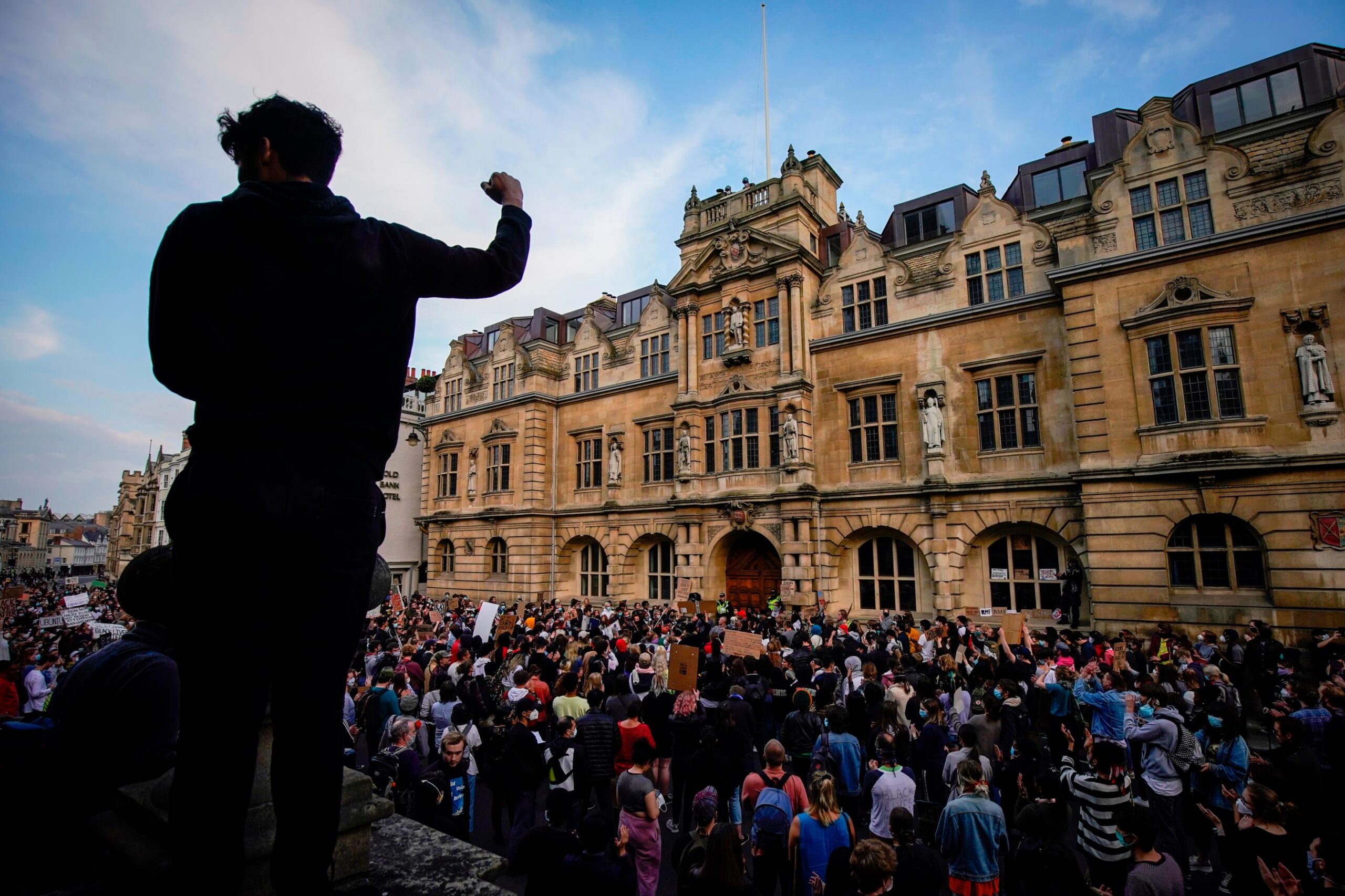Oxford University’s Oriel College has backtracked on its plans to bring down a controversial statue of colonialist Cecil Rhodes, deciding its removal would be too complicated and costly, dashing the hopes of students who protested the monument last year.
The college’s governing body had previously said it supported taking down the statue, which became the site of demonstrations during the height of the Black Lives Matter protests last year.
But it changed those plans on Thursday, despite the members of an independent commission set up by the college supporting a desire to bring down the monument.
The college said it “has decided not to begin the legal process for relocation of the memorials,” claiming the process could take years and become too expensive.
Instead, it said it will “contextualise the Rhodes legacy and memorials,” including with “physical elements at the site,” and has agreed to take up several of the report’s recommendations.
Cecil Rhodes was a prominent imperialist who pushed the British Empire to seize control over vast areas of southern Africa, first as a businessman and later as prime minister of Cape Colony in what is now South Africa. He attended Oriel College and left it money in his will, but critics say his legacy is tainted by racism and his steadfast belief in the inferiority of other races made him controversial even in his own time.
In a statement Thursday, Oriel College accepted that its independent commission had “backed the College’s original wish… to remove the statue.” But the commission’s report outlined the complexities of removing a historically significant statue and the college said those challenges had deterred them from pursuing its removal.
They added that an office of Tutor for Equality, Diversity and Inclusion will be created and the college would “fundraise for scholarships to support students from Southern Africa.”
“In respect of the future of the Rhodes statue, a majority of Commission members supported the expressed wish of the Governing Body to move it,” the commission said in its own statement. “There was a minority view that it was not the role of the Commission to comment on the Governing Body’s vote but rather to provide all relevant information to enable a final decision to be taken.”
Why is Cecil Rhodes controversial?
The Rhodes statue has been controversial for several years, and earlier protests had flared up in 2015. The long-running “Rhodes Must Fall” campaign was reinvigorated during Black Lives Matter protests in the United States last year, following the death of George Floyd.
In June, hundreds of students took to the street outside Oriel College demanding the statue be removed. The protest came after activists in the English city of Bristol tore down a statue of a slave trader, Edward Colston, and threw it in the harbor.
Another Rhodes statue, at a university in South Africa, was removed in 2015 after weeks of similar protests.
As the co-founder of the diamond mining company De Beers, which controlled about 90% of the world’s diamond mines during his lifetime, Rhodes was an extremely influential figure in global trade in the late 19th century.
His career was driven by an ardent belief that the Anglo-Saxon race was superior to those he wished to colonize. In 1877, he wrote: “I contend that we are the finest race in the world and that the more of the world we inhabit the better it is for the human race.”
In the same statement, Rhodes said other parts of the world are “inhabited by the most despicable specimens of human beings” and that “Africa is still lying ready for us (and) it is our duty to take it.”
Britain’s numerous statues of colonialist figures have become a focal point in the country’s culture wars; Prime Minister Boris Johnson has frequently reiterated his support of historical monuments, but a growing number of activists argue their presence is insulting in a multicultural society.

